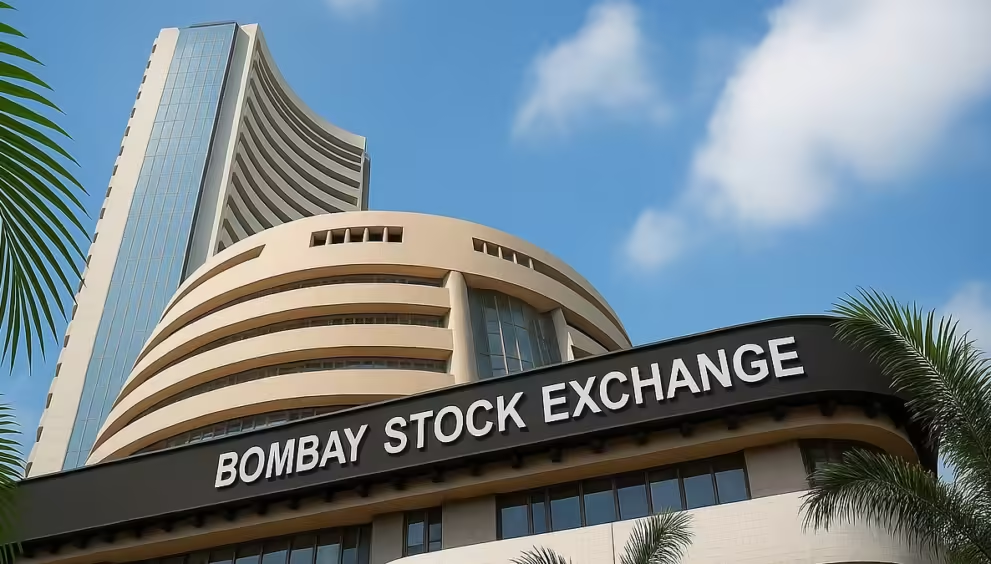BSE’s pre-open derivatives trading may enhance liquidity, transparency, and global competitiveness.
The Bombay Stock Exchange (BSE), Asia’s oldest stock exchange, is once again looking to innovate and boost its competitiveness.
In a significant development, BSE is reportedly planning to introduce pre-open derivatives trading, a move that could reshape the way India’s derivatives markets function. The announcement comes at a time when the BSE is actively seeking to reclaim market share in equity derivatives from its larger rival, the National Stock Exchange (NSE), and strengthen its position as a full-service financial marketplace.
While this sounds like a technical change, its potential impact could be big. For investors, intermediaries, and the exchange itself, pre-open derivatives trading opens the door to better price discovery, reduced volatility at market open, and enhanced global competitiveness.
What Is Pre-Open Trading In Derivatives?
Currently, the Indian derivatives market functions without a dedicated pre-open session. In equities, a pre-open session allows for order collection and matching before the official market opening, helping to smoothen price discovery and minimize volatility spikes caused by overnight news, global events, or large institutional orders.
Extending this mechanism to derivatives trading (futures and options) would provide the same benefits, allowing investors and traders to place their bids, adjust hedges, and manage exposure before the actual trading session begins. The result? A more orderly market open and fairer price levels.
Why Is BSE Introducing It Now?
NSE dominates India’s derivatives market, commanding over 95% of the share. For BSE, which has seen success in equity trading and mutual fund distribution (via StAR MF), derivatives remain a weak spot. Pre-open trading could act as a differentiator, helping BSE attract institutional and algo-driven participants seeking better price efficiency.
Many international markets, including the US, Europe, and Singapore, already run pre-open sessions for both equities and derivatives. By adopting this, BSE signals its ambition to operate at global standards, making it more attractive for foreign portfolio investors (FPIs).
Pre-open derivatives trading is likely to improve order flow and liquidity, particularly in index options and futures. This can result in more efficient hedging and arbitrage strategies, lowering spreads and boosting participation.
Impact On BSE Ltd.’s Stock
The market typically rewards exchanges when they announce new initiatives that enhance participation, liquidity, and fee revenue. BSE’s move toward pre-open derivatives trading could impact its stock price positively in several ways.
Higher derivatives participation means higher transaction volumes. Even a 1% market share shift from NSE’s F&O dominance could translate into ₹2–2.5 lakh crore of daily notional turnover for BSE, generating ₹40-60 crore in annual transaction revenue, assuming standard fee structures. Given that NSE controls over 98% of the F&O market with notional daily volumes of ₹200-220 lakh crore, even marginal traction at BSE is financially meaningful.
Exchanges are valued on growth, market innovation, and revenue visibility. BSE’s revenue stood at ₹1,249 crore in FY24 with a 42% EBITDA margin, but only ~15% came from derivatives and other segments, highlighting the scope for expansion. By introducing pre-open trading, BSE signals to investors that it is forward-looking and ready to capture untapped opportunities.
Institutional investors may perceive this as a serious attempt by BSE to compete, improving sentiment around the stock. BSE has already delivered a 200%+ rally in the past two years, supported by higher equity cash volumes (₹7-9 lakh crore monthly) and growing retail participation (demat accounts at 16.1 crore as of July 2025).
If pre-open derivatives trading improves liquidity and price discovery, global funds, which already route ₹15,000-20,000 crore daily through Indian equities, may consider channeling a portion via BSE, further enhancing reputation and revenues.
Challenges And Risks
Of course, this won’t be a smooth ride, as there are several challenges to consider.
The first is market adoption, traders and institutions are deeply entrenched in NSE’s ecosystem, and convincing them to actively shift and use BSE’s derivatives platform will take time and effort.
Next comes technology and execution risks: a pre-open system demands a robust technological infrastructure capable of handling high-speed algorithmic trading while minimizing glitches, as even a minor operational misstep could severely damage market confidence.
Finally, regulatory scrutiny will play a big role. SEBI will be closely monitoring how pre-open derivatives impact overall market volatility and systemic risk, and if the platform leads to excessive speculation or arbitrage without genuine liquidity, restrictions could follow.
Bigger Picture: India’s Derivatives Markets’ Evolving
India’s derivatives market is already the largest in the world by contract volume, largely fueled by retail participation in index options. With pre-open trading, BSE is attempting to improve quality, depth, and institutional participation. If executed well, it could signal the start of a healthier competitive landscape between NSE and BSE.
For long-term investors, this development highlights BSE’s ability to innovate beyond its traditional cash equity business and diversify into high-growth, high-margin areas.
Conclusion
The introduction of pre-open derivatives trading by BSE could be a landmark change in India’s financial markets. For investors, it promises better price discovery and stability; for the exchange, it offers a chance to reclaim relevance in derivatives and unlock new revenue streams.
While challenges exist, particularly around adoption and execution, the potential upside for BSE’s business model and stock performance is significant.
If successful, this move won’t just enhance BSE’s stature but could also set the stage for a more balanced, competitive, and globally aligned Indian derivatives market.
For shareholders, it’s yet another signal that BSE is no longer content being in NSE’s shadow, it’s aiming to fight back.
Disclaimer:
Arjit Garg, is a SEBI Registered Research Analyst (Reg. No.: INH000021951). The views and opinions expressed in this article are for informational and educational purposes only and should not be construed as investment advice or a recommendation to buy, sell, or hold any security, including BSE Ltd. Investors are advised to consult their financial advisors and consider their risk profile before making any investment decisions. The information is based on publicly available data, believed to be reliable.
Neither, Arjit Garg, nor any of Daily Equity’s associates/affiliates have any financial interest or beneficial ownership in BSE Ltd. at the time of writing. Markets are subject to risks, and past performance is not indicative of future results.





